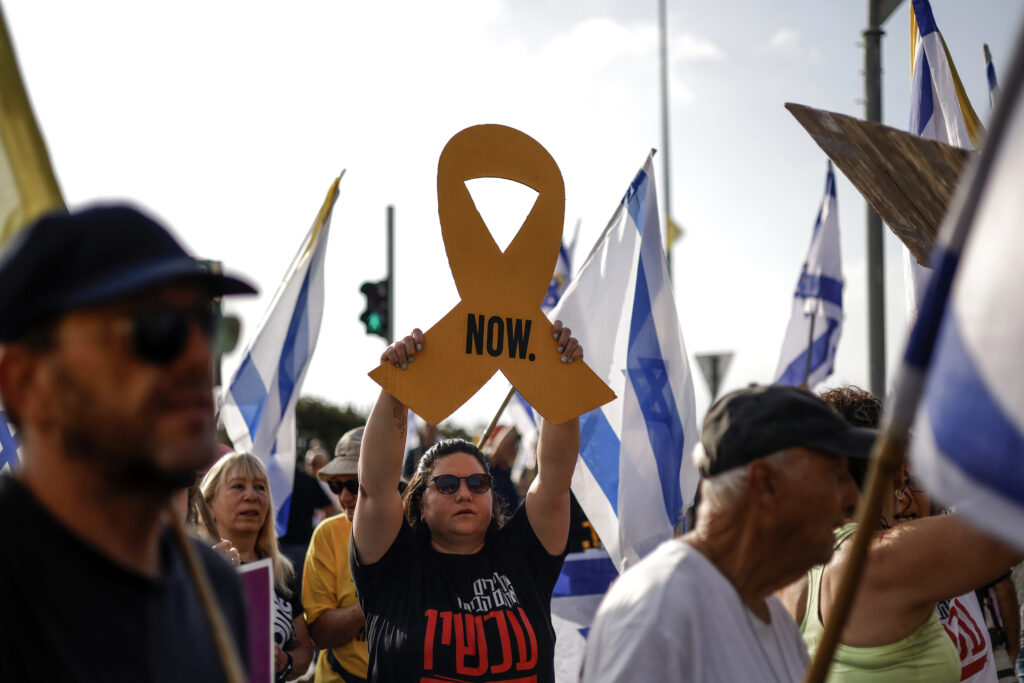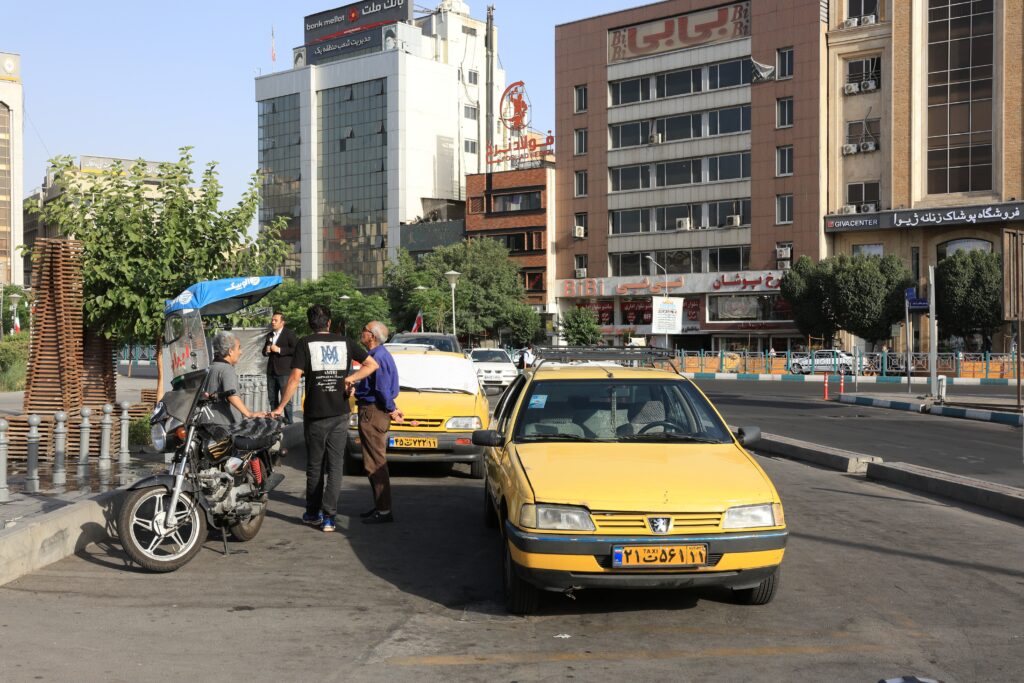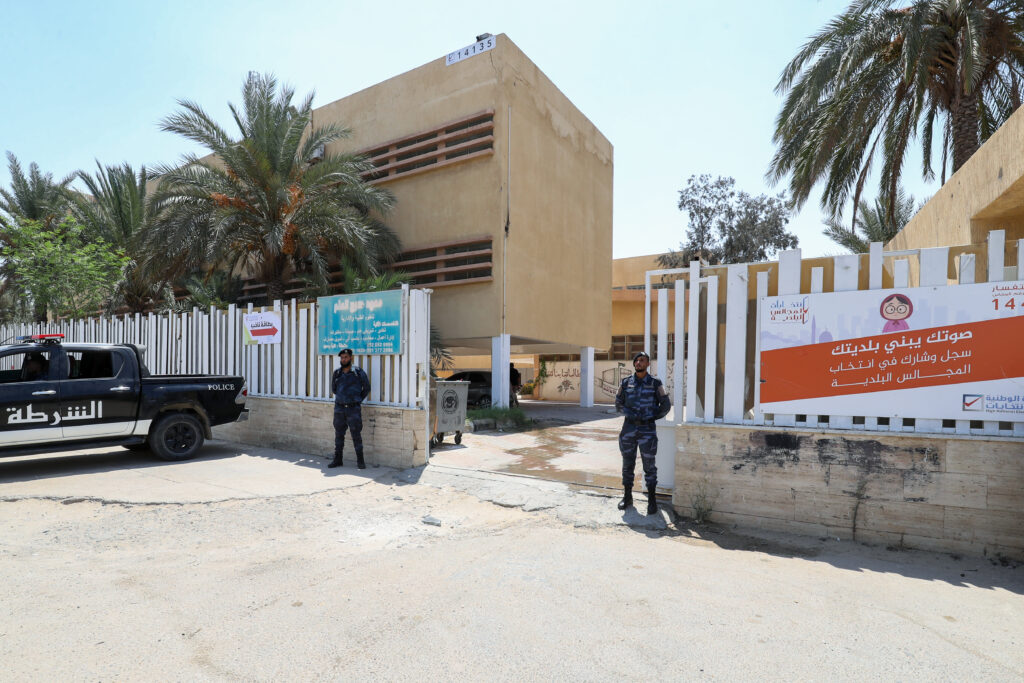Israelis rally nationwide calling for end to Gaza war, hostage deal
Demonstrators across Israel called on Sunday for an end to the Gaza war and a deal to release hostages still held by militants, a push sharply criticised by Prime Minister Benjamin Netanyahu and his allies.The protests come more than a week after Israel’s security cabinet approved plans to capture Gaza City, 22 months into a war that has created dire humanitarian conditions in the Palestinian territory.The war was triggered by Palestinian militant group Hamas’s October 7, 2023 attack on Israel, during which 251 people were taken hostage.Forty-nine captives remain in Gaza, including 27 the Israeli military says are dead.A huge Israeli flag covered with portraits of the remaining captives was unfurled in Tel Aviv’s so-called Hostage Square — which has been a focal point for protests throughout the war.”This is probably the last minute we have to save the hostages,” demonstrator Ofir Penso, 50, told AFP as thousands gathered in downtown Tel Aviv ahead of a night of protests.”Israelis are not all alike. There is a substantial part… that opposes the official policy,” he added amid the crowd of protesters, some of them carrying flags emblazoned with “681”, the number of days hostages have been held in Gaza.Demonstrators also blocked roads, including the highway connecting Tel Aviv and Jerusalem where they set tyres on fire, according to Israeli media footage.The police said more than 30 protesters were arrested for disturbing public order.Organisers also called for a general strike on Sunday — the first day of the working week in Israel.Nentanyahu slammed the protesters, saying their actions “not only harden Hamas’s position and draw out the release of our hostages, but also ensure that the horrors of October 7 will reoccur”.- ‘Shut down the country’ -The Hostages and Missing Families Forum campaign group said protesters would “shut down the country today (Sunday) with one clear call: Bring back the 50 hostages, end the war”.Their tally includes a soldier killed in a 2014 war whose remains are held by Hamas.Recent videos released by Hamas and its ally Islamic Jihad showing two weak and emaciated captives have heightened concern for the fate of the hostages.”If we don’t bring them back now -– we will lose them forever,” the forum said.Egypt said in recent days mediators were leading a renewed push to secure a 60-day truce deal that would include hostages being released, after the last round of talks in Qatar ended without a breakthrough.Some Israeli government members who oppose any deal with Hamas slammed Sunday’s demonstrations.Israel’s far-right Finance Minister Bezalel Smotrich decried “a perverse and harmful campaign that plays into the hands of Hamas” and calls for “surrender”.Benny Gantz, an opposition leader, condemned the government “attacking the families of the hostages” while “bearing responsibility for the captivity of their children by Hamas for nearly two years”.AFPTV footage showed protesters at a rally in Beeri, a kibbutz near the Gaza border that was one of the hardest-hit communities in the Hamas attack, and Israeli media reported protests in numerous locations across the country.- Famine warnings -The Israeli plans to expand the war into Gaza City and nearby refugee camps have sparked an international outcry as well as domestic opposition.Chief of staff Lieutenant General Eya Zamir said on Sunday that the military was “approving the plan for the next phase of the war”.”We will maintain the momentum of Operation ‘Gideon’s Chariots’ while focusing on Gaza City. We will continue to strike until the decisive defeat of Hamas,” he said, referring to a major offensive launched in May.In response Hamas said the plans would result in “a new wave of extermination and mass displacement”.According to an Army Radio report, the plan includes residents of Gaza City being evacuated before troops encircled and seize the city, beginning “in the coming weeks”.Tens of thousands of reserve soldiers would be called up for the mission, the report added.Israel on Saturday said it was preparing “to move the population from combat zones to the southern Gaza Strip for their protection”.UN-backed experts have warned of widespread famine unfolding in the territory, where Israel has drastically curtailed the amount of humanitarian aid it allows in.Gaza’s civil defence agency said Israeli fire on Sunday killed at least seven Palestinians waiting to collect food aid near two sites.Hamas’s October 2023 attack on Israel resulted in the deaths of 1,219 people, mostly civilians, according to an AFP tally based on official figures.Israel’s offensive has killed more than 61,944 Palestinians, most of them civilians, according to figures from the health ministry in Hamas-run Gaza which the United Nations considers reliable.




